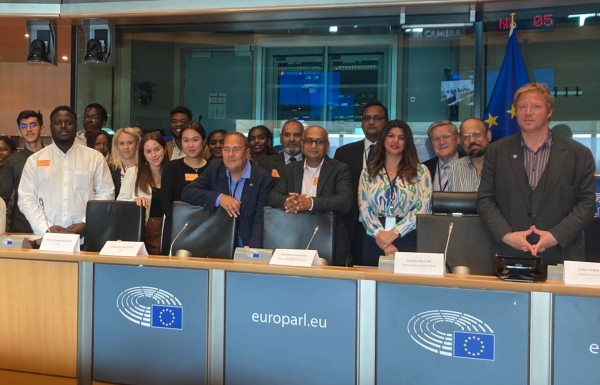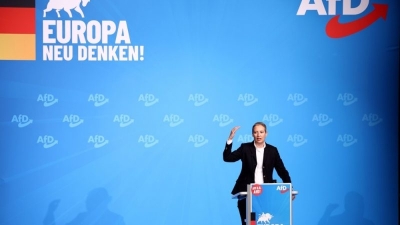A cause whose time has come: Recognition of the 1971 Bangladesh Genocide

The European Parliament has hosted an event entitled ‘The Forgotten Genocide: Bangladesh 1971’ but the mood of the meeting was that the true nature of the atrocities committed by the Pakistan Army and its local collaborators 52 years ago can no longer be ignored. International recognition is the next step, writes Political Editor Nick Powell.
A Pakistani commander was quoted as making the genocidal intention clear, stating that “we are determined to rid East Pakistan of the threat of cessation, once and for all, even it means killing two million people and ruling it as a colony for 30 years”. That target for killings was surpassed but East Pakistan nevertheless achieved independence as Bangladesh, yet after more than 50 years those terrible events have still not been internationally recognised as genocide.
The European Association for the Defence of Minorities held a conference in the European Parliament aimed at convincing MEPs and wider society that the time has come for Europe and the world to recognise the genocide that was so swiftly forgotten in so many countries after 1971.
The President of Global Human Rights Defence, Sradhnanand Sital, recalled that after the Second World War Europe had said ‘never again’ but in Bangladesh there had been organised genocide, not only against the Hindu minority (who were especially targeted) but all Bengalis. Paul Manik, a human rights activist who experienced the brutality as a youth, called on the European Parliament to recognise that this was not just a large-scale massacre, it was genocide.
The Director of Human Rights Without Frontiers, Willy Fautré, explained how years of persecution had culminated in genocide. Since its foundation in 1947, Pakistan had been politically and militarily dominated by West Pakistan, where Urdu was the main language. But the most populous part of the new state was Bengali-speaking East Pakistan. Within a year, Urdu was proclaimed the sole national language.
Decades of ethnic and linguistic discrimination against Bengalis followed, with their literature and music banned from state media. The oppression was reinforced by military rule but in December 1970 an election was held. The Awami League, led by Bangabandhu Sheikh Mujibur Rahman, swept to victory, winning all but two of the parliamentary seats representing East Pakistan and a majority in the entire state’s National Assembly.
AdvertisementInstead of allowing him to form a government, the Pakistan military prepared Operation Searchlight, to arrest Bengali political leaders, intellectuals and students. It was a classic attempt to decapitate society and a major step down the road to genocide. The operation was launched on the evening of 25 March 1971, met immediate fierce resistance and led to Bangladesh’s independence being proclaimed the next day.
In a film shown at the conference in the European Parliament, an eyewitness recalled her father, a professor, being shot and left for dead within minutes of his arrest. She and her mother were already trying to help four other dying men before a neighbour discovered her father. By the time he received medical help, there was no hope for him.
Willy Faubré observed that using the term genocide to refer to such events and the mass killings and rapes that followed should hardly be controversial. Three renowned institutes, Genocide Watch, the Lemkin Institute for Genocide Prevention and the International Coalition of Sites of Conscience, have all come to that conclusion.
Bangladesh’s Ambassador to the European Union, Mahbub Hassan Saleh, said that the European Union is a strong advocate for human rights all over the world, so it would be a great step if the European Parliament and other EU institutions recognised the Bangladesh Genocide. It was the responsibility of Bangladeshis to tell the world what happened over nine months in 1971.
“We don’t lose heart, we have waited 52 years, so we can wait a little more, but we will get intentional genocide recognised internationally”, he said. That widespread recognition was necessary, he explained, before Bangladesh could consider taking a case to the International Court.
Academic research was now underway, he added, that could provide the evidential basis for court action. Then, with global humanity on Bangladesh’s side, there could be a trial of war criminals, although for some of them it might be a posthumous trial.
Share this article:



